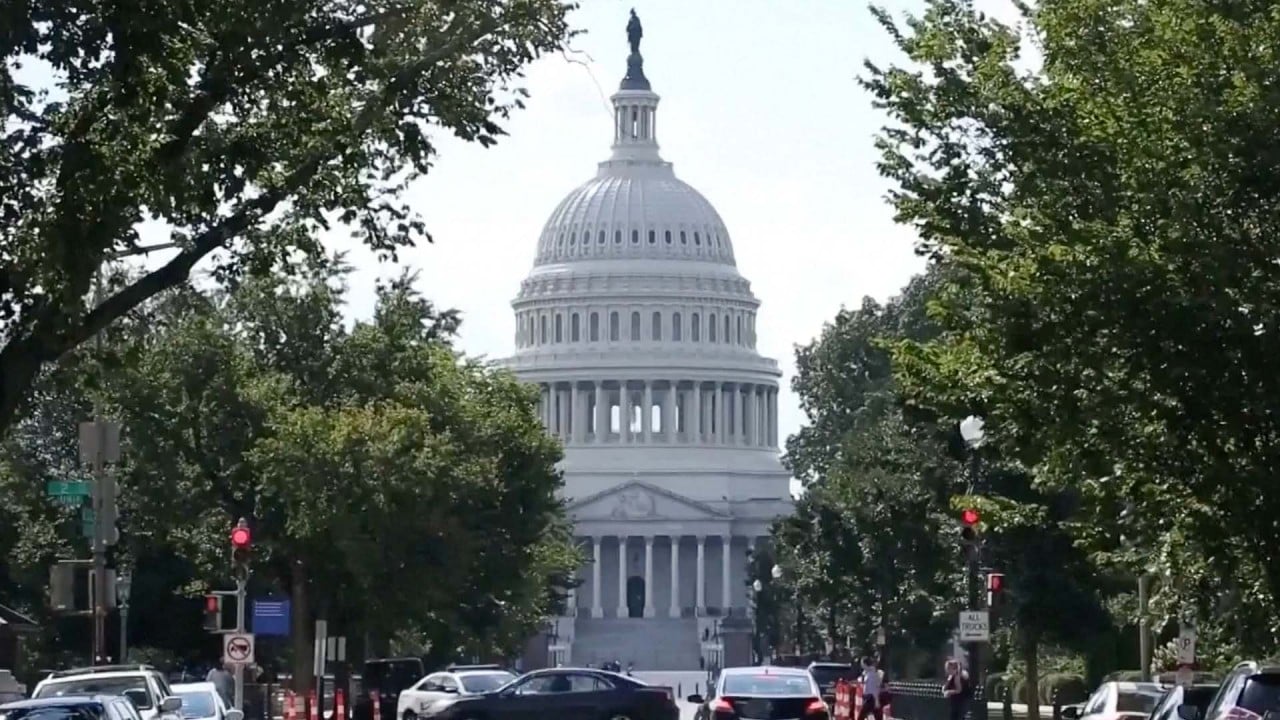
US adds 7 Chinese aerospace and chip firms to export blacklist
- State-affiliated institutes involved in chip development and space programme join around 600 other Chinese entities on the list
- The move comes weeks after US President Joe Biden signed law to bolster American semiconductor industry
US companies will need an export licence to sell to seven Chinese state-affiliated firms in the aerospace and chips sector after Washington blacklisted them on Wednesday for supporting China’s efforts to modernise its military.
The list, known officially as the Entity List, includes around 600 Chinese firms deemed to be operating against US national security and foreign policy interests.
US House approves Chips Act to subsidise and speed up semiconductor production
“We will continue to leverage all our investigative resources to deny the [People’s Republic of China] access to sensitive US technologies.”
The organisations put on the export control list included two research institutes of the China Aerospace Science and Technology Corporation’s (CASC) Ninth Academy, according to the unpublished notice to the Federal Register, the US government gazette.
The 772 Research Institute is a similar branch but located in Beijing. Also known as the Beijing Microelectronics Technology Institute, it develops military-grade electronic components, including chips.
The 513 Research Institute, based in Yantai, Shandong province, researches and develops chips and computer systems used in satellites, according to a post on its WeChat account. It also develops remote sensing and encryption technology for defence applications.
China semiconductor group warns new US Chips law may lead to supply chain chaos
A pair of institutes under the China Electronics Technology Group Corporation (CETC) were also added to the list.
The CETC’s 43 Research Institute operates labs for testing microchips and electronic components in Anhui province and is recruiting postgraduate students who have studied integrated circuit design and microelectronics, according to its official WeChat account.
The 58 Research Institute in Beijing is engaged in chip research and production for national defence, industry and government organisations.
US maintains Trump-era tariffs on Chinese imports despite Biden ambivalence
Zhuhai Orbita Control Systems, the only newly listed entity not directly owned by the Chinese central government, designs integrated circuits and develops artificial intelligence for satellites and space exploration. The company is under the southern city of Zhuhai’s agency for overseeing state-owned assets.
American export regulations have restricted a slew of Chinese companies from accessing key US technologies, including military goods and dual-use items with both national defence and civilian applications.



